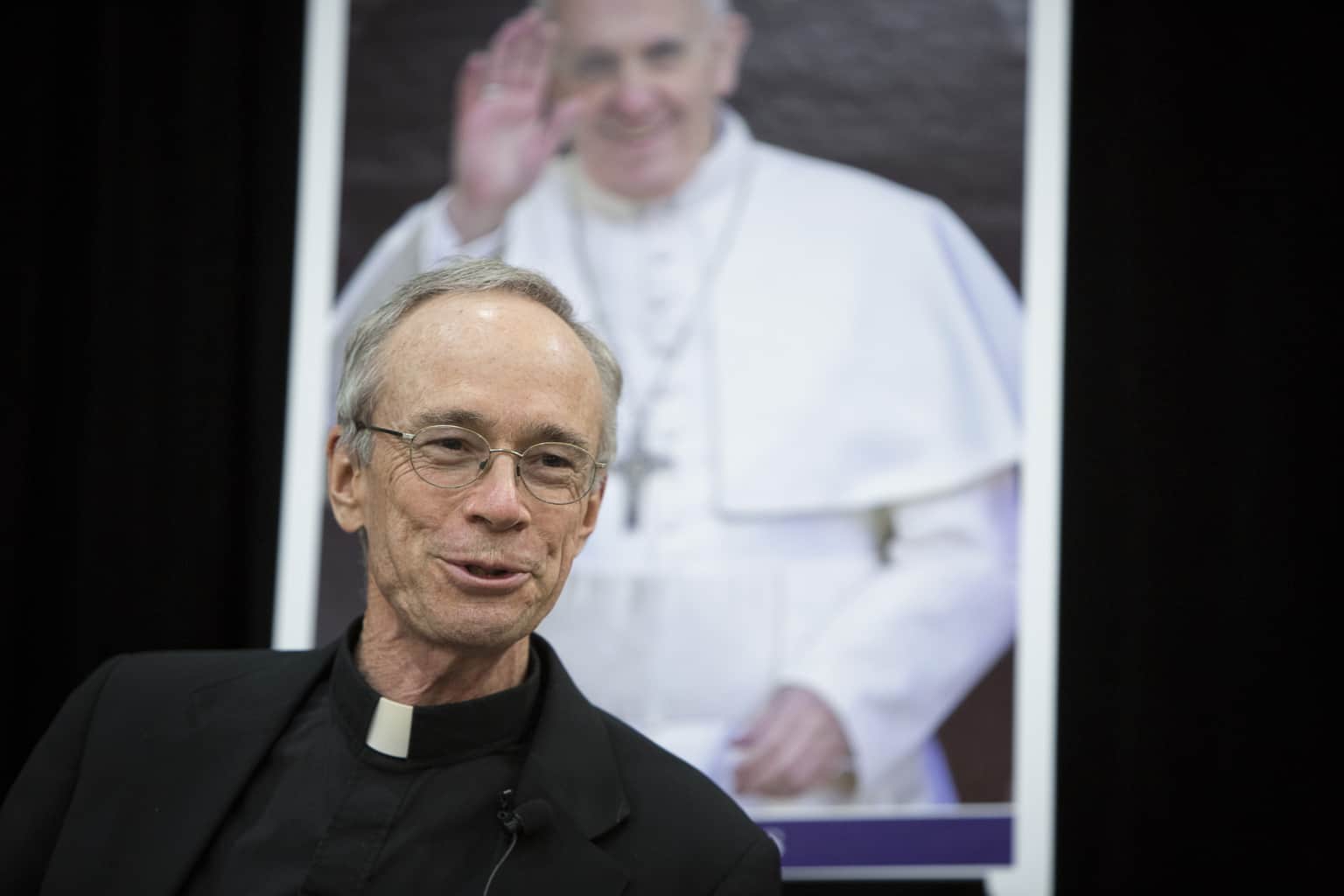Fr. Thomas J. Reese, S.J. , is a senior analyst at Religion News Service. Previously he was a columnist at the National Catholic Reporter and editor in chief at America magazine. He is the author of Archbishop, A Flock of Shepherds, and Inside the Vatican.
The synod has been described as “a privileged instrument for listening to the People of God.” How have you seen such willingness and ability to listen during this Synod?
The synod began a listening process even before it met in Rome at the beginning of October. As part of the process of preparing of the synod, there were extensive listening sessions around the Amazon region directed especially at indigenous communities. REPAM, the Pan-Amazon Ecclesial Network, collected input from 260 listening sessions plus roughly 65 territorial assemblies. It estimates that about 87,000 people were consulted during the process.
The input from these sessions was used in writing the Instrumentum Laboris (working paper) that was prepared for the synod delegates.
In addition, lay and religious observers, both men and women, were invited to participate in the synod. They were allowed to address the synod and participate in small group discussions. The only thing they could not do is vote.
But most importantly, the bishops themselves had spent years observing the plight of indigenous people and the environment in their dioceses. They had listened to their people and been affected by them.
How does an observer meaningfully contribute to the synod process?
In every synod I have covered, the participants say that they enjoy most the discussions in small groups. This is also true of this synod. The small groups are organized by language groups so the communication is easier without the need for translators. The discussion in the small groups is also more informal, with give and take. In the small groups the lay auditors and the expert participate equally with the bishops. Here they can discuss a topic and then move on to another topic. By contrast, the speeches in the full assembly are set 4-minute addresses that were often prepared before the bishops arrived in Rome. Since they were prepared ahead of time, they don’t really respond to each other. Also, they often hit three or four topics superficially, whereas in the small groups people can interact and discuss a single topic in detail.
Today we are supposed to get the reports from the small groups of their discussions. These will feed into the drafting committee that will put together the final report and recommendations to Francis.
During the last synod, you wrote about “modes of listening.” What kind of listening have you observed so far during the Amazon Synod?
At the synod on young people, I noted that “for many bishops listening is simply a way to discover young people’s questions, which they answer with the traditional theology of the church.” I contrasted this with “A second approach to listening is to hear what young people think about the church in order to discover how the church must change.” This second approach is much more evident at this synod than at any other I have watched. They realize that a European form of Catholicism can simply be another form of colonization. Inculturation means the church must change. We will not change unless we listen.
Do you have any specific examples of this second type of listening from this synod?
Many of the bishops spoke of the need to listen to indigenous people in order to know how to inculturate the Gospel in their context. They criticized the past approach as another form of colonialization that imposed European values and practices on local cultures. They realized that inculturalization must be under the control of locals.
What have been the biggest surprises of the Synod so far? Greatest consolations?
Pope Francis has said that “facts are more important than ideas.” We see that perspective in most of the bishops at the synod who are more interested in what is happening on the ground in the Amazon than in ideological stances. The bishops are not debating theological ideas, they are trying to find solutions to real problems: the destruction of the environment, the exploitation of indigenous peoples, and inculturating the Gospel in an indigenous context. For example, the fact that so many of their people do not have the Eucharist available to them is more important than any theology talking about the wonders of celibacy.
Second, the role of curial cardinals at the synod is very limited. The Amazon bishops are not taking their directions from the curia as bishops did in past synods. People like Cardinal Sarah, prefect of the Congregation for Divine Worship, are simply ignored. He opposed ordaining married men and would never support an indigenous rite for celebrating the Eucharist and sacraments in the Amazon, which many and perhaps most of the bishops support.
How would you respond to someone who is feeling uneasy about the synod’s direction?
For those upset by efforts to inculturate Christianity into an Amazonian setting, I would remind them that the first example of inculturation was Europe. Much of European Catholicism would be shocking to the 12 Apostles and early Christians. Today’s Mass is celebrated very differently than the Last Supper. European churches are full of statues and paintings that would be anathema to early Jewish Christians. European theology based on Greek philosophy would be unintelligible to first generation Christians. The organization structure of the church would be unrecognizable. If these European examples of inculturation are legitimate, how can we say that other cultures cannot do likewise.
Synodality means listening to one another and walking together. In the past, those who opposed this approach would say, “Just listen to the pope and do what he says.” Today, those who oppose synodality also oppose the pope. They do not want to listen to the pope; they do not want to listen to anyone else. This is a textbook definition of pride. They are people who are so convinced of their opinions that they will not listen to anyone. Sad.
Is there anything else you think our readers should know about the synod process?
The synod is not the end of the process, it is simply a step forward in the church’s response to the needs of the Amazon and its people. A lot more will need to be done to protect the rainforest and the rights of indigenous peoples. Creativity must be unleashed to respond to the pastoral needs of the Amazon in a way that reflects indigenous cultures.
But the synod also has a message for us in the United States. The Amazonian rainforest is being destroyed to support our lifestyle. Indigenous peoples are being uprooted by multinational corporations owned by U.S. investors. Not all of the problems of the Amazon can be solved in the Amazon. We have to do our part. We can learn from the indigenous to respect nature and learn to live in harmony with it. The Amazon is God’s garden and gift which must be loved and treasured not defaced and destroyed.


